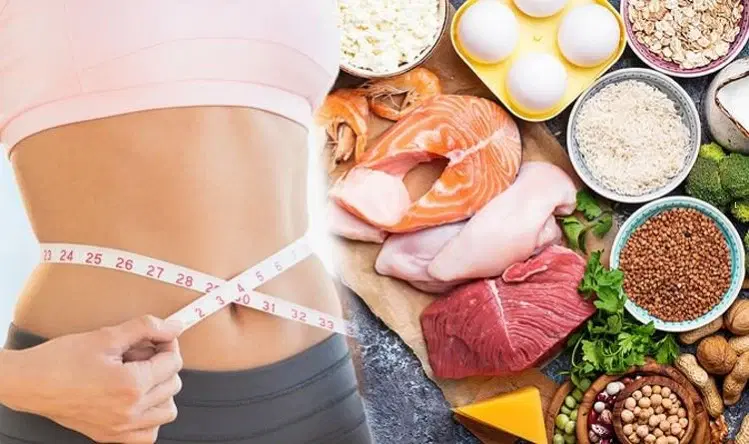The Role of Protein in Effective Weight Loss
Learn why protein is a key macronutrient for weight loss and how to incorporate it into your meals.

12/10/24 - Learn why protein is a key macronutrient for weight loss and how to incorporate it into your meals.
The Role of Protein in Effective Weight Loss
When it comes to losing weight, many people focus on reducing calories, cutting carbs, or trying the latest fad diet. However, one of the most important macronutrients for achieving sustainable weight loss is often overlooked—protein. Protein is not only essential for overall health, but it also plays a significant role in weight management. In this article, we'll explore why protein is crucial for weight loss, the best sources of protein, and how to incorporate more of it into your meals.
Why Protein is Essential for Weight Loss
Protein is often referred to as the building block of the body. It's involved in numerous vital functions, from repairing tissues and building muscle to supporting the immune system. But how does protein help with weight loss? Here are some key reasons why protein is essential for shedding pounds:
- Protein Increases Satiety: One of the biggest challenges when trying to lose weight is managing hunger. High-protein foods help you feel full longer by slowing down the emptying of your stomach and reducing hunger hormones. This means you're less likely to overeat or reach for unhealthy snacks throughout the day. In fact, studies have shown that eating protein-rich meals can reduce overall calorie intake and support long-term weight loss.
- Protein Boosts Metabolism: Digesting and metabolizing protein requires more energy than carbohydrates or fats. This is known as the thermic effect of food (TEF). By consuming more protein, your body burns more calories during digestion, which helps increase your overall calorie expenditure. This metabolic boost can be especially beneficial when you're in a calorie deficit and working toward weight loss.
- Protein Helps Preserve Muscle Mass: When you're losing weight, you're not only shedding fat—you're also at risk of losing lean muscle mass. However, consuming adequate protein helps preserve muscle tissue, especially when combined with strength training exercises. Maintaining muscle mass is crucial for weight loss, as muscle burns more calories than fat, even at rest. Therefore, a higher protein intake can help you lose fat while preserving the muscle you’ve worked hard to build.
Best Protein Sources for Weight Loss
To reap the full benefits of protein for weight loss, it's important to include a variety of high-quality protein sources in your diet. Whether you follow a plant-based or animal-based diet, there are plenty of delicious and nutritious options to choose from:
- Animal-Based Protein Sources:
- Chicken: Skinless chicken breast is a lean, high-protein option that’s low in fat and versatile for many dishes. It’s a great choice for anyone looking to add more protein to their meals.
- Fish: Fatty fish like salmon, tuna, and mackerel provide not only protein but also heart-healthy omega-3 fatty acids. These can help reduce inflammation and promote overall health while supporting weight loss.
- Eggs: Eggs are an excellent source of complete protein, containing all nine essential amino acids. They are also packed with nutrients like vitamins D and B12, making them a great choice for breakfast, lunch, or dinner.
- Plant-Based Protein Sources:
- Lentils: Lentils are an affordable and high-protein legume that is rich in fiber, which helps you stay full longer. They’re also a good source of iron and other essential nutrients, making them a great addition to any plant-based diet.
- Chickpeas: Like lentils, chickpeas (or garbanzo beans) are a protein-rich legume that provides fiber and a variety of minerals. They can be used in salads, soups, and even made into hummus for a healthy snack.
- Tofu: Tofu, made from soybeans, is a versatile and complete protein that can be used in a wide range of dishes. It’s particularly popular in vegetarian and vegan diets and is an excellent source of protein without the saturated fat found in some animal-based products.
How to Incorporate Protein Into Every Meal
Incorporating protein into each meal is essential for optimizing weight loss. Aim to include a good source of protein in every meal and snack to help you stay full, boost metabolism, and preserve muscle mass. Here are some simple ways to add more protein to your daily meals:
- Start Your Day with Protein: Breakfast is a great opportunity to include protein. Scramble some eggs, add a scoop of protein powder to your smoothie, or enjoy a bowl of Greek yogurt with chia seeds and berries. Protein-rich breakfasts help keep you satisfied and energized throughout the day.
- Snack Smart: Instead of reaching for processed snacks, try protein-packed options like a handful of nuts, a hard-boiled egg, or hummus with veggies. These snacks will keep you full between meals and provide a steady source of energy.
- Make Protein the Star of Your Meals: For lunch and dinner, focus on protein-rich main dishes. Try grilled chicken, salmon, or a lentil stew. You can also experiment with plant-based protein options like quinoa bowls or tofu stir-fries. Pair your protein with a variety of vegetables and whole grains for a balanced, nutrient-rich meal.
- Protein-Rich Smoothies: If you find it challenging to eat enough protein, smoothies are a great way to boost your intake. Add protein powder, Greek yogurt, or peanut butter to your smoothie for a tasty and satisfying drink.
Conclusion
Protein is an essential macronutrient for effective weight loss, as it helps control hunger, boosts metabolism, and preserves muscle mass. By incorporating a variety of high-quality protein sources—both animal and plant-based—into your meals, you can optimize your weight loss journey and achieve your goals in a sustainable way. Whether you’re eating chicken, fish, tofu, or lentils, the key is to make protein a priority in your daily diet. Remember, consistency is key, and small dietary changes can make a significant difference in the long term.